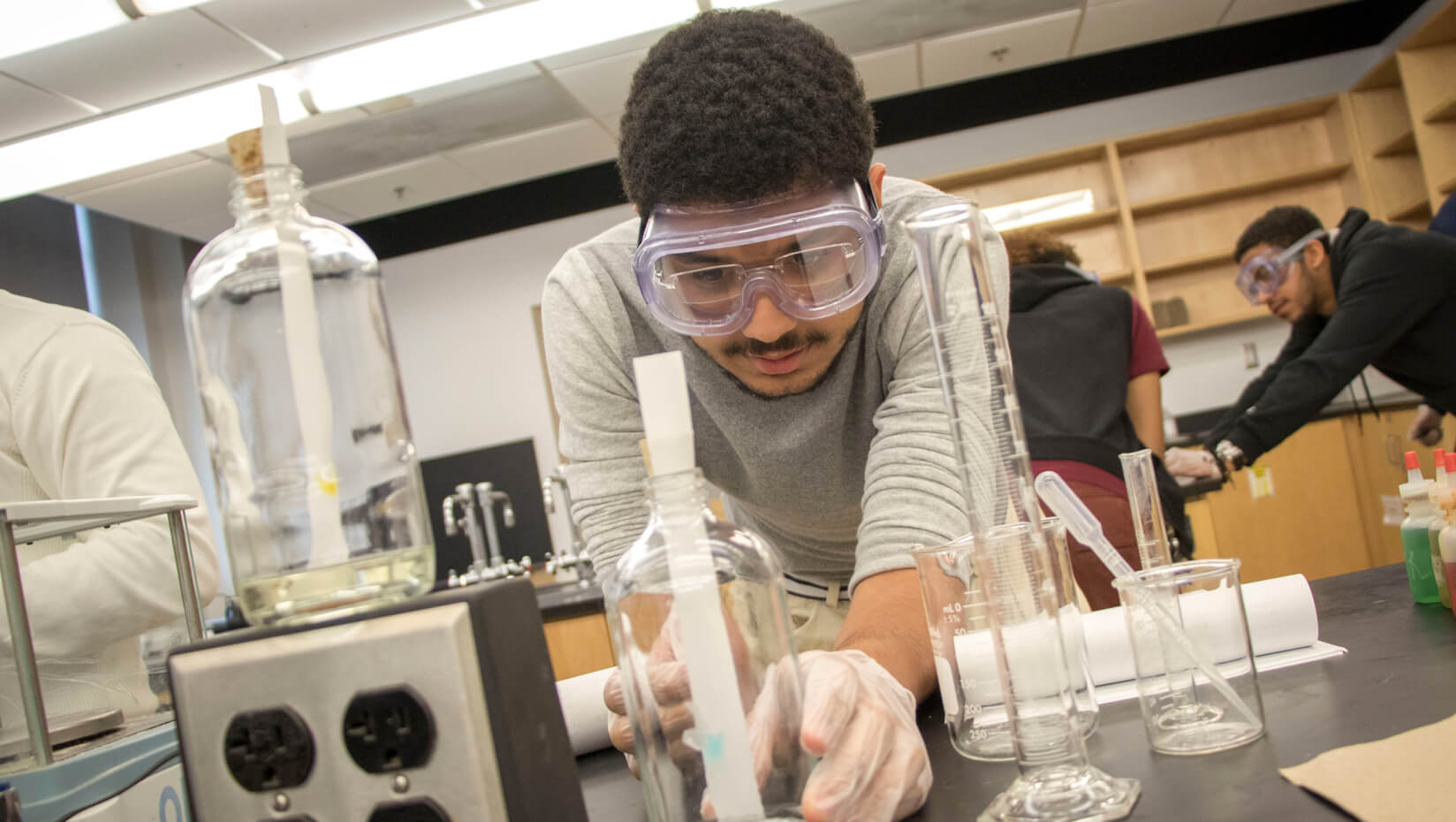
NSF grant funds STEM education project in chemistry
Scientists and science educators have emphasized the vital role that reasoning with analogies plays in innovation, making new discoveries and advancing science. Fostering college students’ use of analogical reasoning in constructing scientific arguments in chemistry laboratory work is the focus of a more than $278,000 grant from the National Science Foundation.
Mitchell Bruce and Alice Bruce, UMaine associate professors of chemistry, will lead the three-year research project to establish the basis of a new learning cycle developed at UMaine called CORE — Chemical Observations Representation Experimentation. Chemists are adept at using analogical reasoning to make connections between observations that can be made with the senses (macroscopic level), the behavior of submicroscopic particles such as atoms and molecules, and the various representations used in chemistry. However, many chemistry students struggle with making these connections in college courses, which creates a barrier to learning.
CORE learning cycle is designed to provide an environment in which students can develop their analogical reasoning skills in a sequence that mirrors the process of experimentation and discovery. A main goal is to support the development of strong analogical reasoning skills in a way that fosters the connections between macroscopic, submicroscopic and representational domains.
The NSF Improving Undergraduate STEM Education project offers the potential to provide students with the skills needed to be successful in participating in science, technology, engineering and mathematics (STEM). At UMaine, STEM education is a Signature Area of Excellence.
Contact: Margaret Nagle, 207.581.3745
